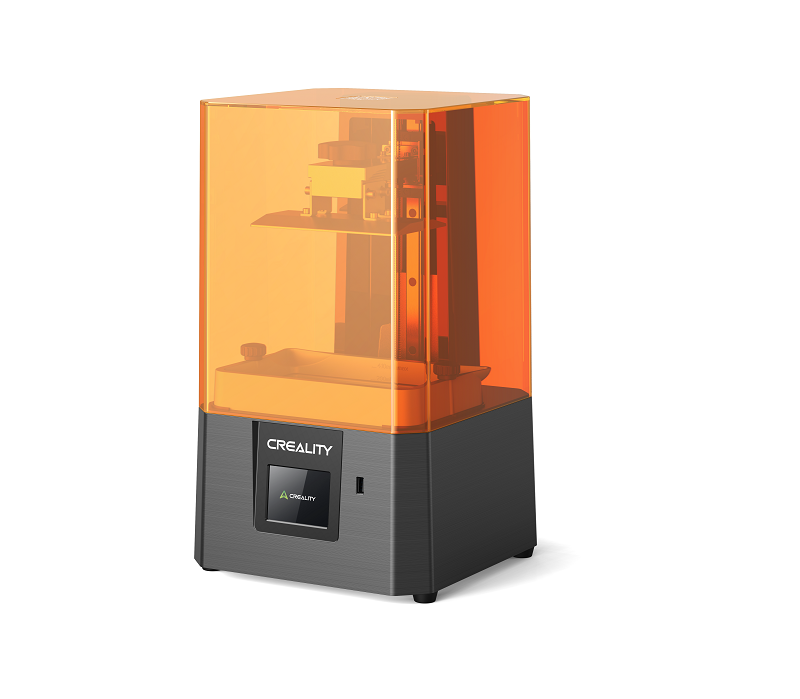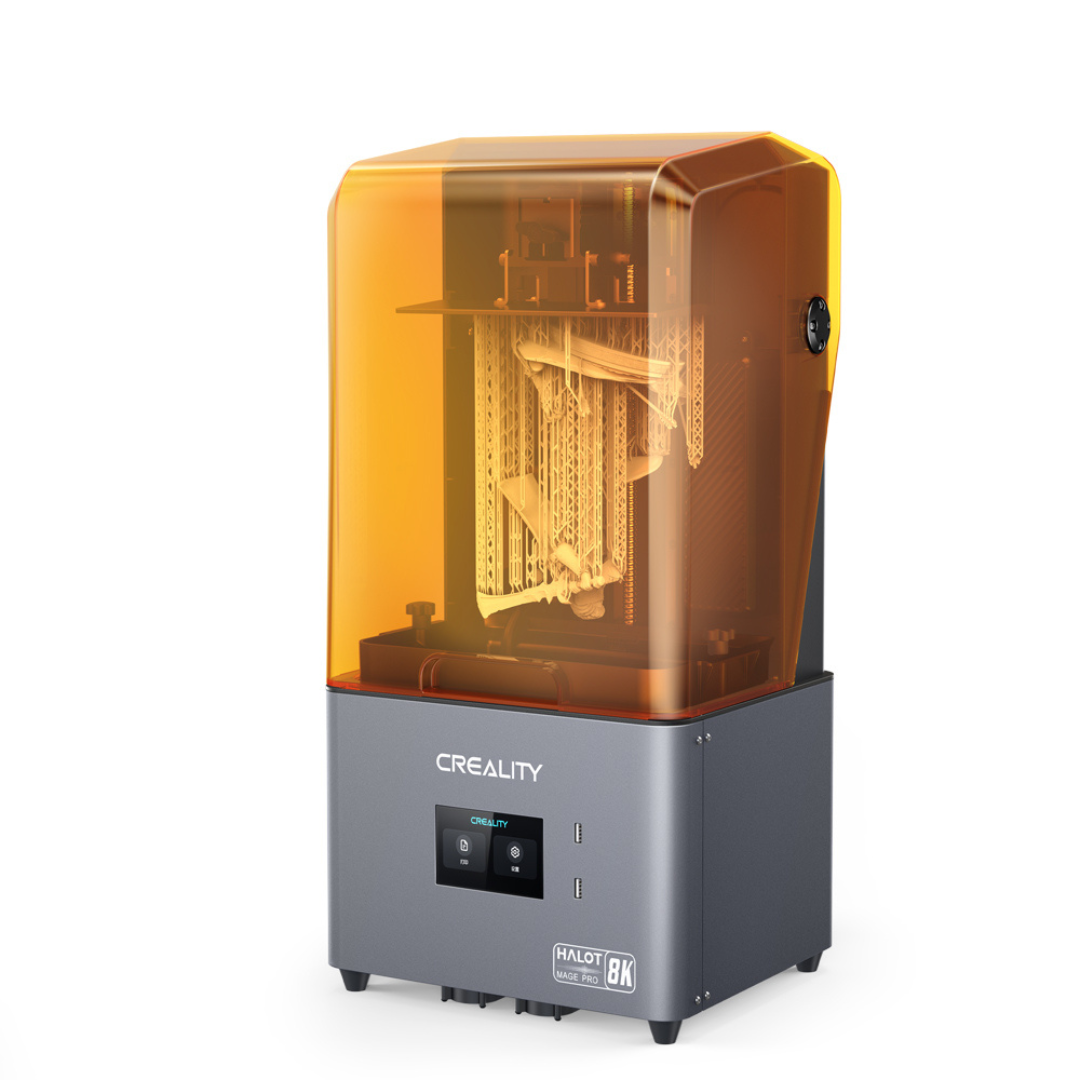Compare Halot R6 vs Halot Mage PRO
Comparison between the best 3D printers
Choose the best 3D printer at the best price. The cheapest 3D printers are here.
Buy a 3D printer here with 3D Fila.
 |
 |
|
| Model | Halot R6[BUY Halot R6] |
Halot Mage PRO |
| Printing Material | Resin | Resin |
| Buy Resin for Creality Halot R6 | Buy Resin forCreality 3D Halot Mage PRO | |
| Estimated price | $129,00 | $479,00 |
| Manufacturer | Creality | Creality 3D |
| Release Year | 2024 | 2023 |
| Print Volume [mm] | 130x82x160 | 228x128x230 |
| Printer Size [mm] | 235x230x395 | 333x270x608 |
| Weight [kg] | 5,8 | 13,3 |
| Power Loss Recovery | NO | NO |
| Technology | LCD | LCD MSLA |
| Screen Resolution | 14k | 8k |
| Max Print Speed [s/layer] | 1 | 1 |
| Maximum Resolution [mm] | 0,01 | 0,01 |
| Processor | ||
| Display | Touchscreen 2,8'' | Display touchscreen 4,3'' |
| Power Supply | 42W | 150 W |
| Connectivity | USB drive, WiFi | USB / Wi-Fi / Ethernet |
| Operating systems | Windows, Mac | Windows, Mac, Linux |
| Date of registration in the system | 2024-12-05 | 2023-12-18 |
| Release date | 2024 | 2023 |
| Extra features | The Creality Halot R6 offers high precision with a layer height of 0.01-0.2 mm, a printing speed of 60 mm/h, and an integral light source with over 90% uniformity. Compact and lightweight, it features a 6.08" monochrome LCD for faster curing and extended durability. Includes Wi-Fi connectivity via Creality Cloud, an intuitive touchscreen interface, and supports remote monitoring and timelapse recording with a USB camera. Ideal for beginners, its robust and user-friendly. | The Creality HALOT-MAGE PRO is an advanced resin 3D printer, distinguished by its high build quality and detailed prints. It uses SLA technology with an 8K LCD screen, providing refined prints in a 228x128x230mm area. It offers an impressive printing speed of up to 170mm/h. Its design includes an automatic resin management system and an integrated air purifier, making it easier to use and reducing odors. Although it requires post-print cleaning, its intuitive interface and connectivity options such as cloud and LAN make the HALOT-MAGE PRO a robust choice for professionals and enthusiasts. |
| Support for multiple colors and materials (AMS and CFS) | NO | NO |
Notes * |
||
| Cost-benefit | 9 / 10 | 8 / 10 |
| Hardware | 8 / 10 | 3.5 / 10 |
| Tela | . | . |
| Print volume | 3 / 10 | 3 / 10 |
| Performance | 9 / 10 | 9 / 10 |
| [BUY Halot R6] |
Conclusion |
| In comparing the Creality Halot R6 and the Halot Mage PRO, several key factors illustrate their respective strengths and appeals, catering to different user needs. The **Halot R6** stands out as an entry-level option with a significantly lower price point. It offers high precision, user-friendly features, and portability, making it ideal for beginners or hobbyists looking for an accessible introduction to resin printing. Its lightweight design, compact dimensions, and intuitive interface enhance its appeal for those with limited space or who prioritize ease of use. The printer's focus on speed and efficiency, coupled with its 14k screen resolution, enables satisfactory performance for novice projects without overwhelming the user with complexity. Conversely, the **Halot Mage PRO** is positioned as a more advanced solution, equipped with enhanced features suitable for professionals or dedicated enthusiasts. Its larger print volume and impressive 8k screen resolution cater to users requiring higher detail and complexity in their projects. The integrated air purifier and automatic resin management system add convenience and usability, although the printer's higher price reflects these advancements. Furthermore, through robust and versatile connectivity options, the Halot Mage PRO supports a more sophisticated workflow, making it a more appealing choice for those who prioritize quality and functionality over cost alone. In summary, if budget and simplicity are of utmost concern, the Halot R6 presents a strong cost-benefit ratio, with performance that suits beginner needs. However, for users seeking advanced features, larger print capabilities, and higher resolution, the Halot Mage PRO, despite its higher investment, represents a worthwhile option for achieving professional-grade results. Ultimately, the choice between these two printers hinges on the intended user experience, desired print quality, and budget constraints. |

